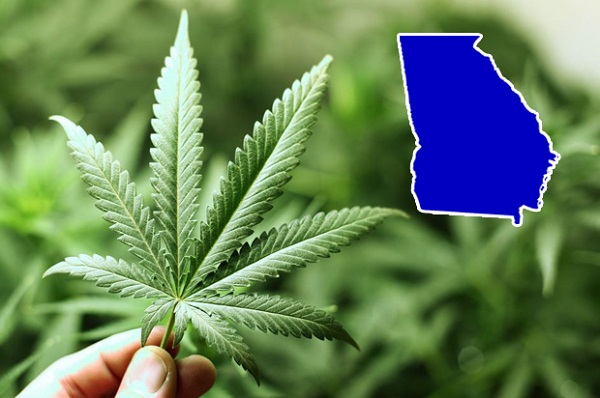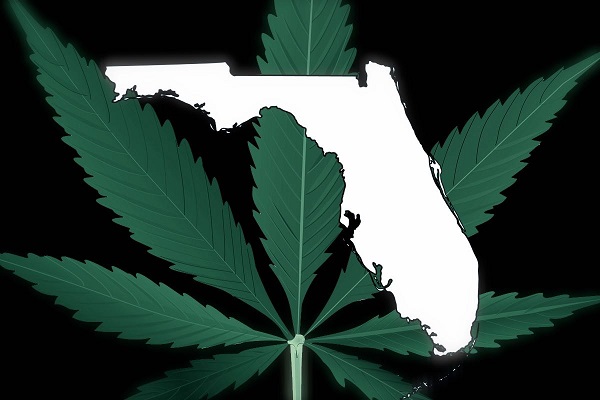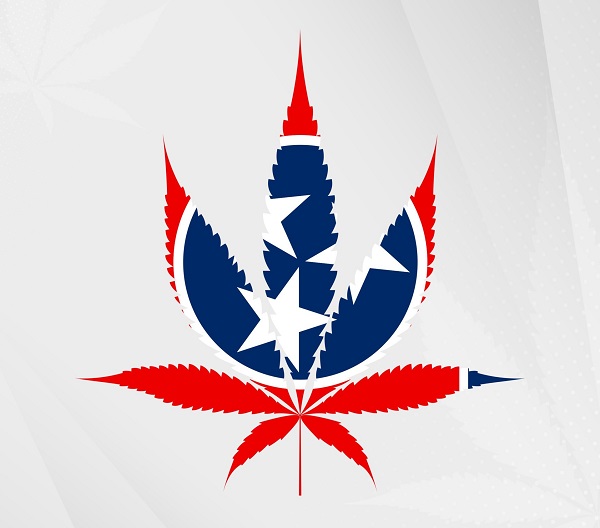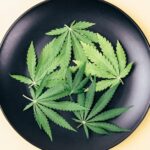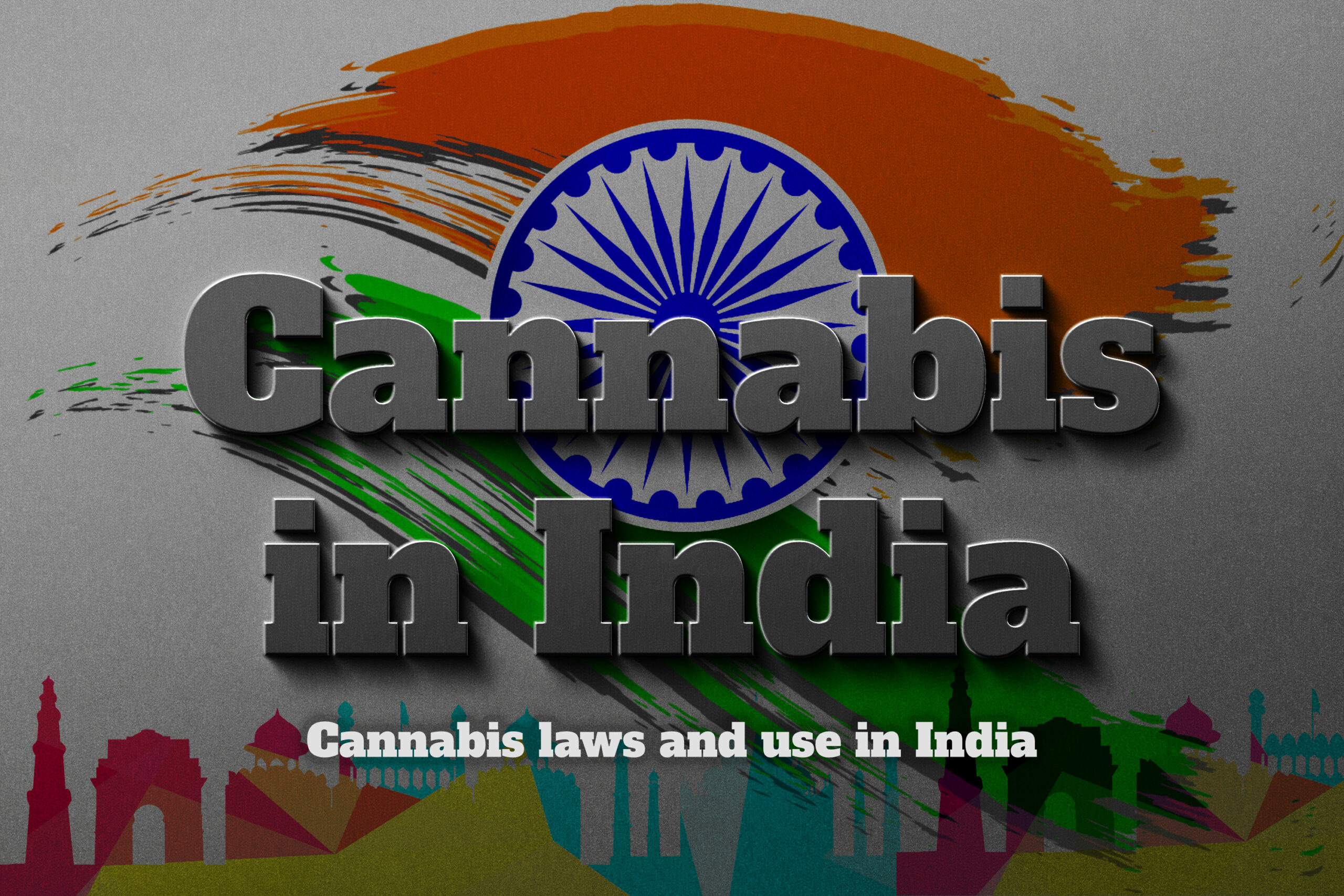
Cannabis has been banned in India since 1985. Despite this, it is still widely used throughout the country and is valued not only as a social pastime but also as an integral part of some religious practices. Indeed, cannabis use is mentioned in the Vedas (a Hindu sacred text) and Shiva is sometimes referred to as «Lord Bhanga».
Can cannabis be stored and consumed in India?
Under Indian law, the possession and use of cannabis is prohibited. There are strict penalties for those found to be in violation of the law. If a person is caught with a small amount of cannabis, they face imprisonment for up to one year or a fine of up to 10,000 rupees, and may also face imprisonment and a fine.
If the amount of cannabis found upon arrest is «less than a commercial quantity but more than a small quantity», the prison sentence can be extended to 10 years, with a fine of Rs. 100,000. For possession of «commercial quantities» of cannabis, the penalty will be 10 to 20 years in prison, and a fine of Rs. 100,000 to 200,000.
Repeat offenders found with 20 or more kilograms of hashish or a product containing 500 grams of THC or more could be sentenced to death.
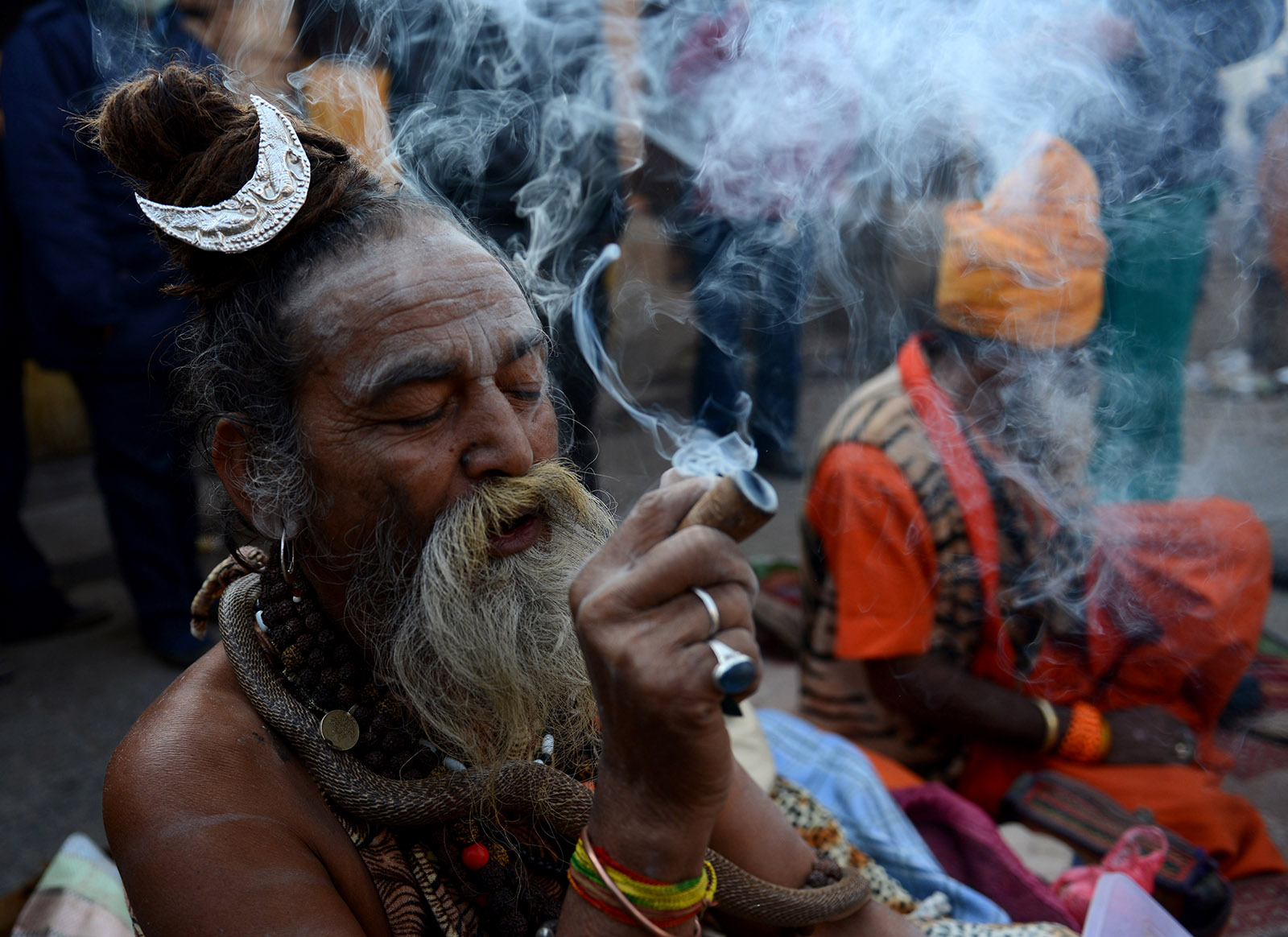
A Nepalese Sadhu (Hindu holy man) smokes marijuana using a chillum, a traditional clay pipe, as a holy offering for Lord Shiva, the Hindu god of creation and destruction, near the Pashupatinath Temple during the Maha Shivaratri festival in Kathmandu on March 7, 2016.
Hindus mark the Maha Shivratri festival by offering special prayers and fasting. Hundreds of sadhu have arrived in Kathmandu’s Pashupatinath to take part in the Maha Shivaratri festival. / AFP / PRAKASH MATHEMA
In India, cannabis use is not considered a serious offense and the longest jail term is up to one year. In some cases, this can be limited to six months or a fine of up to 10,000 rupees, or both.
Despite the possible jail time, cannabis use is popular in India. A study conducted in New Delhi and Mumbai found that these cities are among the top ten cities in the world in terms of the number of people who use the drug. New Delhi ranks third, behind only New York and Karachi.
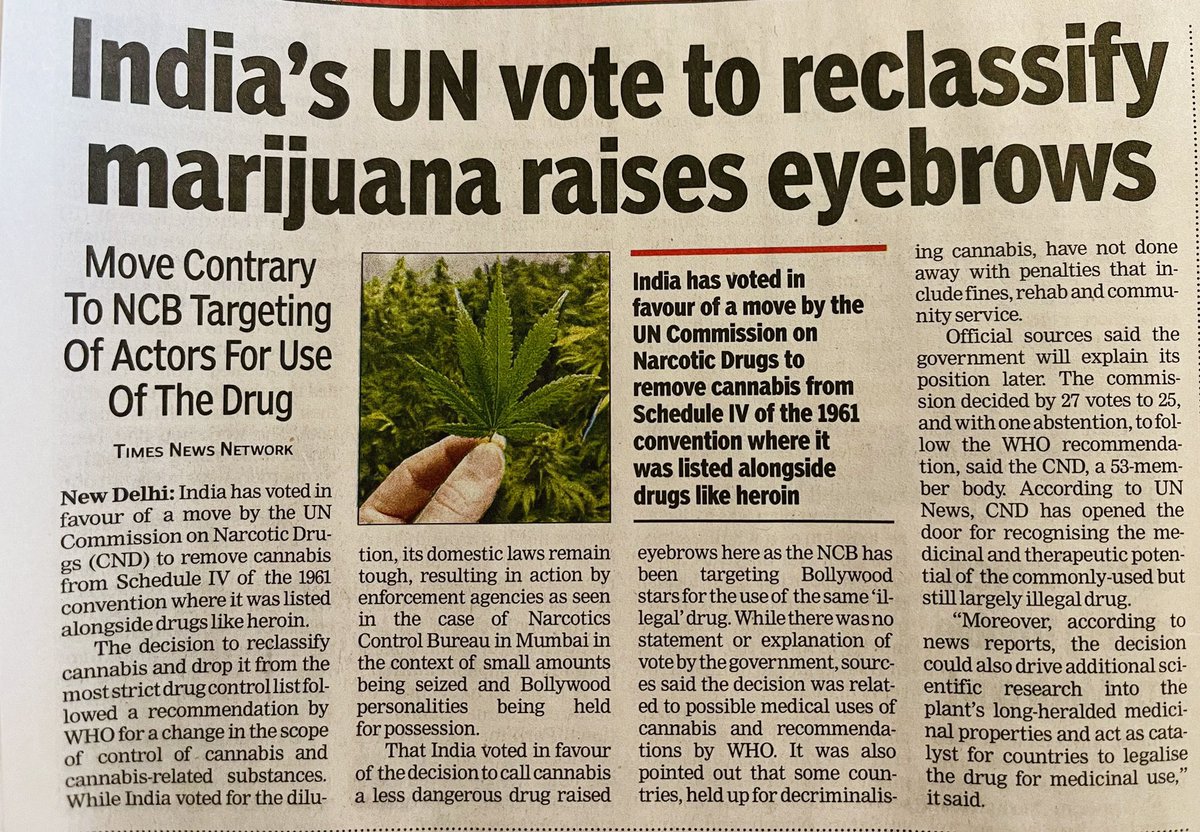
Use of bhang
In some parts of the country, the use of bhang is permitted, especially during the religious festival of Holi. Bhang is an edible product prepared from the leaves and buds of cannabis plants that has been used traditionally for centuries.
The use of bhang is particularly common in the northern regions of the country; especially in Mathura, an ancient city considered to be a place of religious significance for Hindus. It is believed that the consumption of bhang was brought here by Krishna himself.
Varanasi is famous for the production of bhang . On the ghats, people use a mortar and pestle to grind cannabis into a green paste. They then add milk, ghee and spices and use this bhang base to make tandai. Sometimes bhang is also mixed with ghee and sugar to make halwa or small chewy balls called golis.
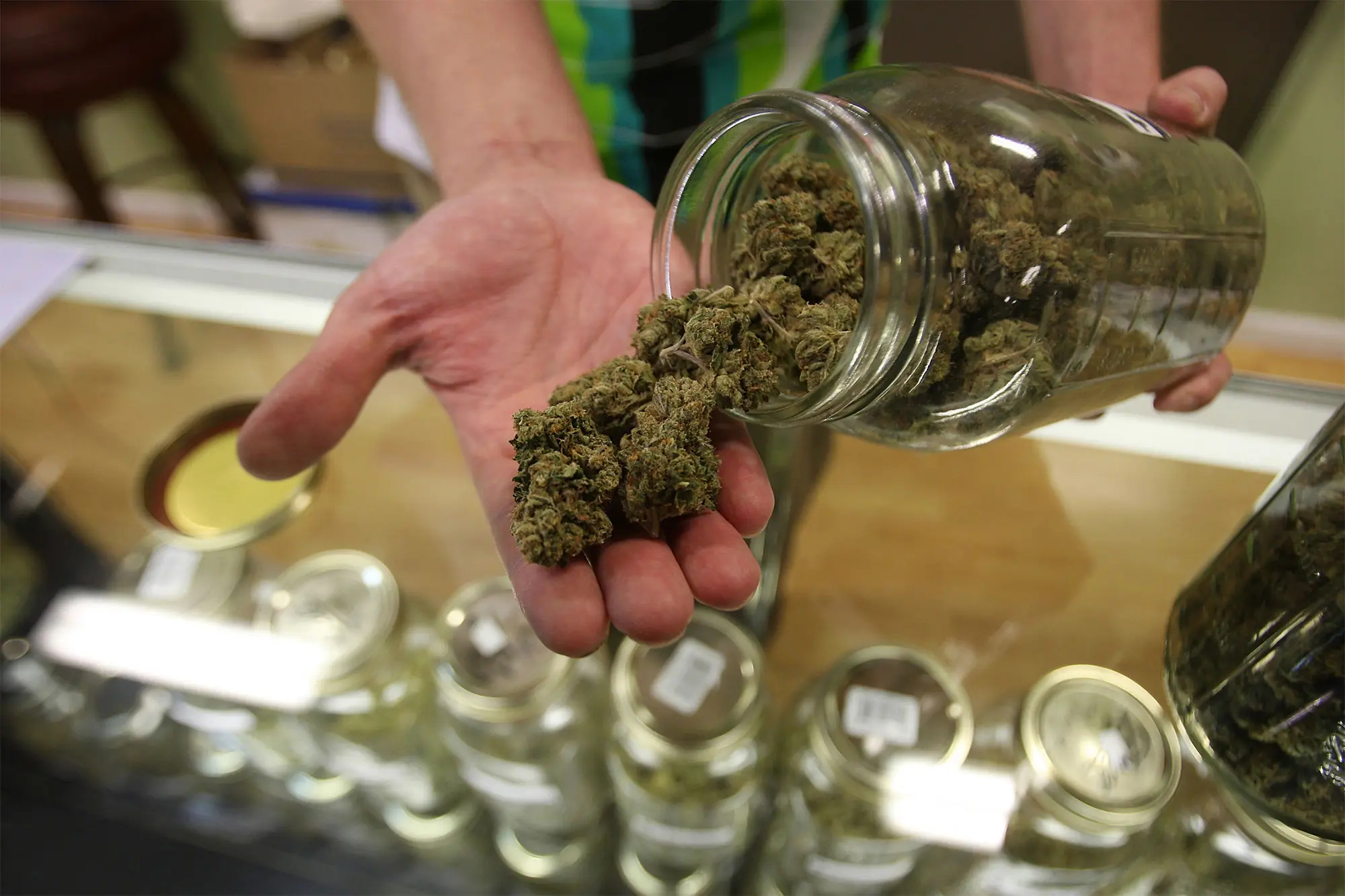
Can cannabis be sold in India?
The sale of cannabis is also illegal in India. The penalties for sale are the same as for possession, with the severity of the punishment increasing depending on the amount of cannabis found during the attempted sale.
Human trafficking in India is considered a serious offense. If a person is caught doing so, they can be sentenced to between 10 and 20 years in prison and fined between 100,000 and 200,000 rupees. In some cases, the judge may impose an even higher fine.
Some scenarios may result in a higher prison sentence. These include:
- Threat or use of violence by the offender
- The offender held public office at the time
- Involvement of minors in the sale
- The sale occurs near an educational or social service facility that is used by students for education, sports, or social activities.
- A person operating as part of an organized gang.
However, the threat of prison does not deter traffickers in India. Police often seize cannabis, and the smuggling of the substance in the country can be significant. In June 2019 alone, more than 3,000 kilograms of the substance was seized in Odisha in a single raid.
Also, like many other drug traffickers around the world, Indian dealers are finding increasingly sophisticated ways to avoid detection by the police, such as growing cannabis at home using hydroponics, selling it via the darknet, or claiming it is a cattle medicine.
A 2018 report by the International Narcotics Control Board highlights that India is one of the largest hubs for drug smuggling in the world, accounting for 6% of the total amount of cannabis seized worldwide.
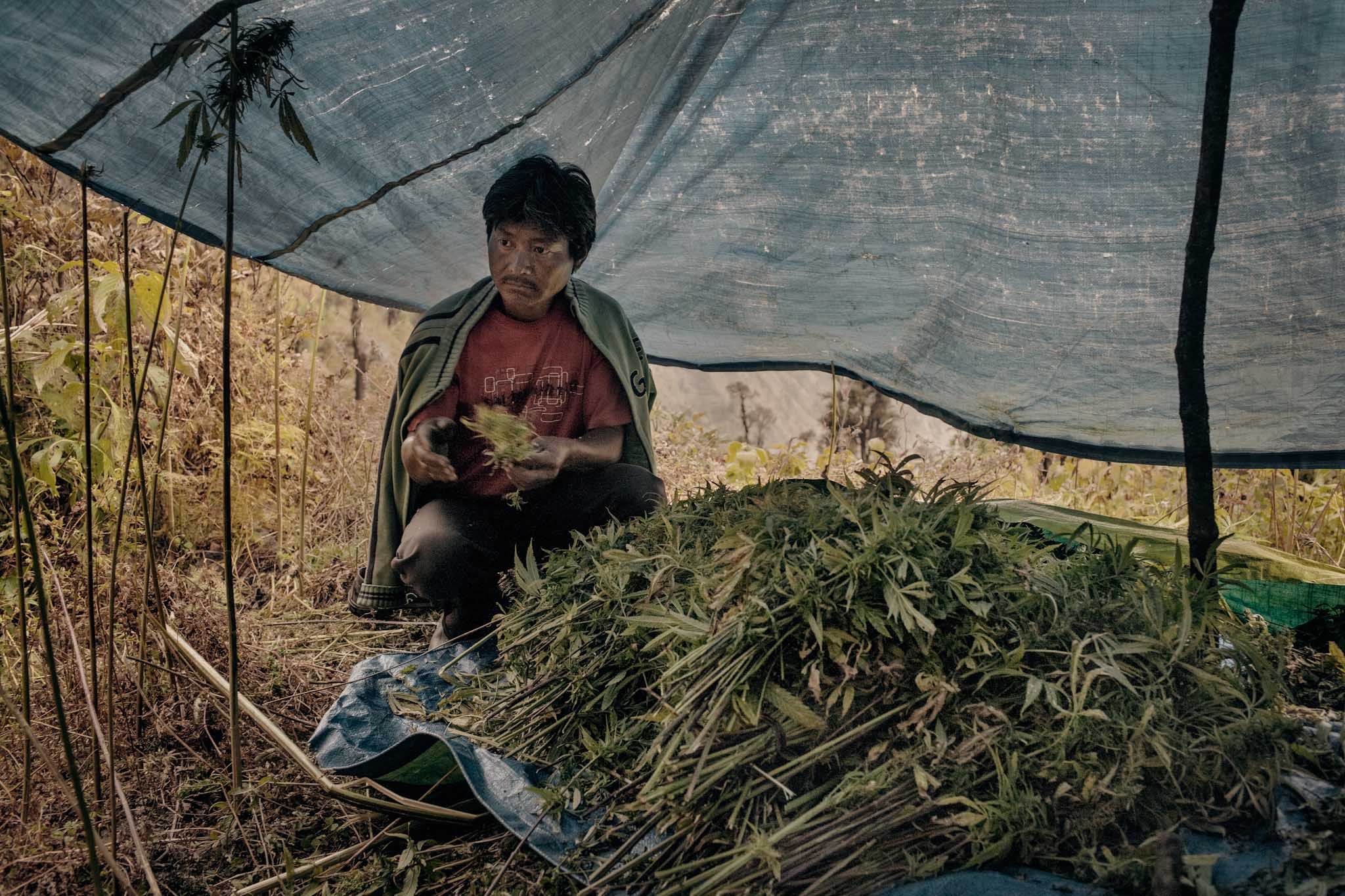
Can cannabis be grown in India?
The cultivation of cannabis is illegal unless it is for scientific or research purposes or for industrial use. In each of those cases, authorization from the Government is required.
The penalty for illegal cannabis cultivation can include imprisonment for up to 10 years and a fine of Rs. 100,000.
Despite the illegality of cannabis cultivation, it is not a major problem for consumers and dealers in the country as the plant is abundant in the wild. This is especially true in the mountainous northern regions, such as Himachal Pradesh.
Farmers in Himachal Pradesh also harvest cannabis plants, but they usually do not actively cultivate it. Instead, the plant naturally thrives among other crops. According to local reports, police often do not intervene if farmers grow and use it only for personal use. Authorities usually only take action when cannabis is sold to others.
One farmer notes: «It’s a very murky area. It’s a huge country and enforcing the laws is really complicated. It doesn’t affect anyone or bother anyone, and if it’s part of your tradition and custom, no one can stop you. We have people openly smoking all the time. It’s part of their lives».
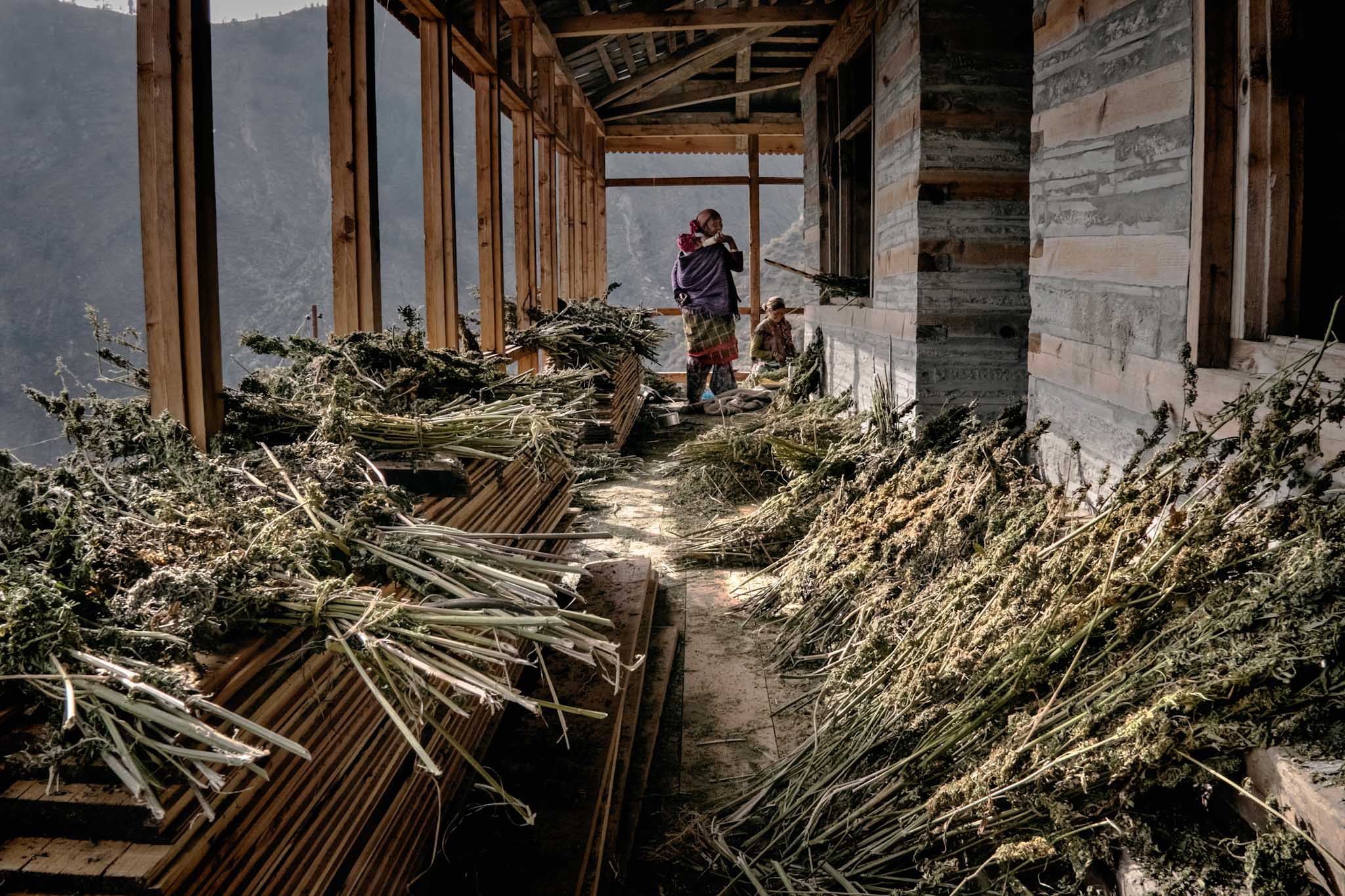
Is CBD legal in India?
CBD does not contain enough THC to cause a «high». Therefore, its purchase, use and sale in India is legal.
Cannabis seeds are legal to use, buy and sell in the country, but the seed industry is regulated by the Indian government. The legalization of seeds is largely based on the fact that they are used in religious ceremonies. However, because the sale of seeds is regulated, it means that sending them into the country through the mail is a gray area of the law.
Medicinal cannabis in India
There is currently no official program for the use of medical cannabis in India. However, access to cannabis-based medicines is limited and their acquisition is difficult due to their high cost. Nevertheless, the prospects for change in that situation in the future look promising.
Right now, academic and industrial research in India is examining the effectiveness of cannabis in treating symptoms of cancer, epilepsy, and sickle cell anemia. In addition, researchers are also looking at using the active properties of cannabis in surgery.
The director of the Tata Memorial Center in Mumbai, Rajendra Badve, notes that it is possible cannabis can put the body into a «state of bliss» similar to the human body, and that this state could be effective in destroying cancer cells. However, this line of research has yet to receive the attention it deserves.
Two cannabidiol-based medicines are expected to be produced in India in the near future. By producing them domestically rather than importing them, their cost will be significantly reduced, making them more accessible to patients.
Ayurvedic medicine
Hemp has played an important role in Indian Ayurvedic medicine for many centuries. The plant’s names in Ayurveda, such as «siddhi» (subtle power or attainment) and «vijaya» (one who conquers), reflect the plant’s appreciation.
According to Ayurveda practitioners, cannabis stimulates the nervous system and acts as an aphrodisiac before acquiring more sedative properties. However, they warn against prolonged and excessive use, stating that it can unbalance the three forces in the body (vata, pitta and kapha). This can result in digestive problems, depression, sexual impotence and exhaustion.
Ayurveda practitioners use hemp in limited quantities to treat high blood pressure. They also recommend it to martial artists as a means to improve concentration. The juice of the leaves is used to fight dandruff and parasites in the hair, and for ear inflammation. Dried leaf powder helps heal wounds, and fresh leaves are used to treat skin infections and rashes. Hemp also has other uses such as fighting diarrhea, stimulating digestion and fighting insomnia.
Industrial hemp in India
Although licensed industrial hemp cultivation was legalized in India in 1985, the first license to grow hemp was only issued in 2018. Currently, industrial hemp is only grown in the states of Uttar Pradesh and Uttarakhand. This was made possible by the issuance of the license by the Industrial Hemp Association of India, a non-profit company that actively promotes the use of the plant for industrial purposes.
The company’s founder and president, Rohit Sharma, has announced plans to start growing non-narcotic hemp with the aim of establishing a seed bank. Villages in Pauri Garwal district will be used for this purpose.
Sharma also said that the company tried to find out the reasons why India is not developing the industry, given its $1 trillion potential. They concluded that while the authorities are showing interest, they lack understanding on how to proceed in this direction, which is limiting the development of the industry in the country.
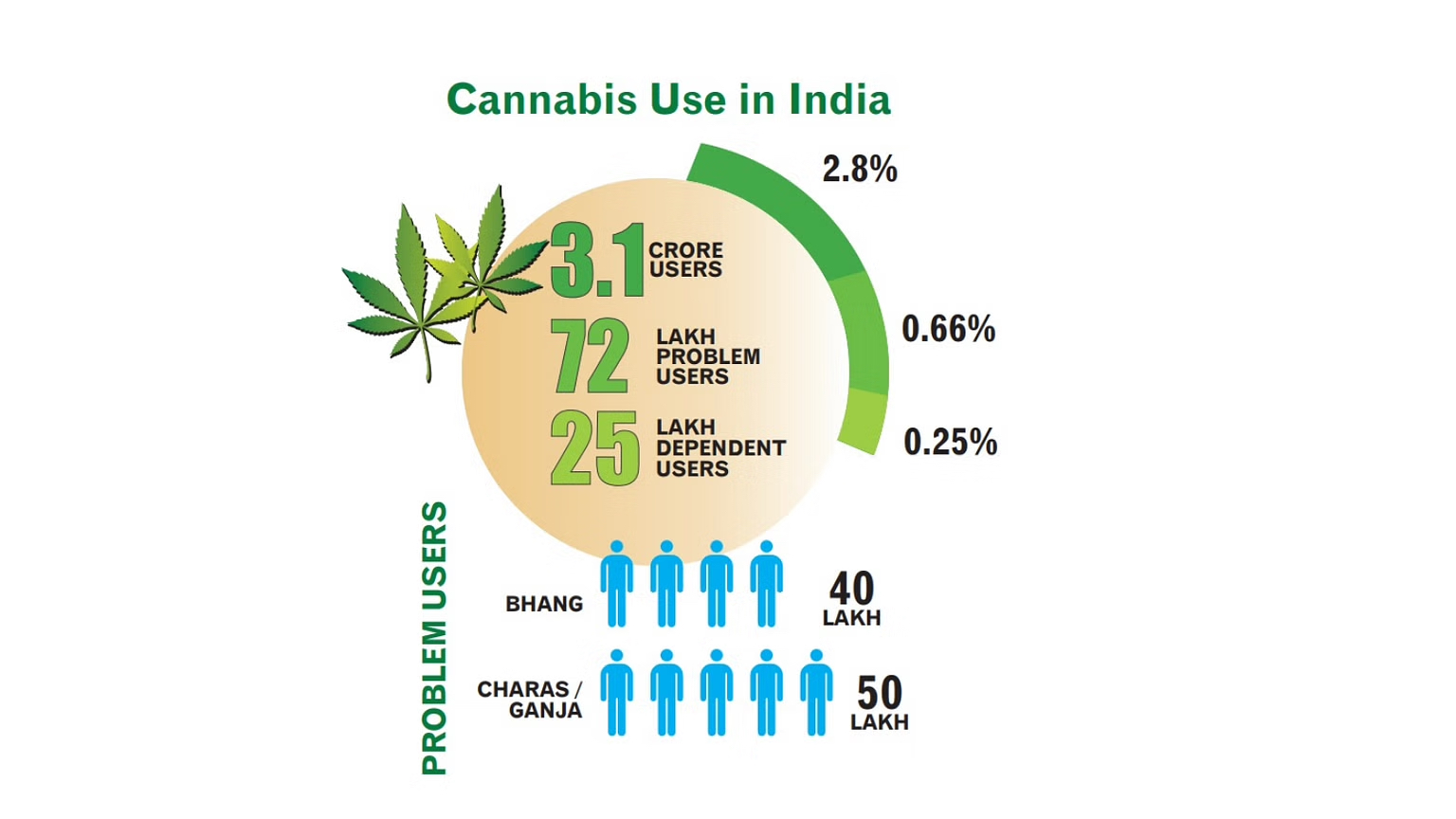
Important to know
If you are traveling to India (or currently living there), you may be interested to know the following:
- New Delhi and Mumbai have been found to have some of the lowest cannabis prices in the world; at $4 to $5 per gram. However, the cannabis offered in the cities is often considered to be of low quality. At the other end of the scale is India, which also produces one of the most expensive types of cannabis, growing in the mountainous northern regions.
- Although cannabis use is illegal in India, it has been traditionally used for centuries and is considered a culturally acceptable pastime. Reports claim that it is relatively easy to obtain in most major cities in the country.
- A recent AIIMS study revealed that more than seven million people use cannabis in India. However, this is a small number compared to alcohol use: about 60 million people are reportedly addicted to it.
History of Cannabis
Hemp has been cultivated and used in India for thousands of years. The Vedas (sacred Hindu texts) contain the earliest references to cannabis and date as far back as 2000 BC. The Vedas list cannabis as one of the five «essential plants» along with barley and soma, and it is believed to have numerous health benefits.
Bhang, fights and food
Since those ancient times, cannabis has been firmly rooted in Indian culture. In the Middle Ages, Indian warriors often drank bhang to give them strength and agility. Bhang is added to other foods to make special dishes and drinks, and it is seen as a social substance, somewhat similar to alcohol in the Western world.
Prohibitions
After India was colonized by the United Kingdom, the British commissioned a large-scale study of cannabis use in the country because they were concerned about its negative impact on people’s mental health. This study involved more than 1,000 interviews with British and Indian medical experts.
The Indian Narcotics Commission report concluded that there was no link between psychosis and cannabis. The report also stated that banning the drug was unjustified given its importance to the Hindu faith.
International pressure prevented the Indian government from supporting the legalization of cannabis. After several countries around the world signed the «Single Convention on Narcotic Drugs» in 1961, India was one of the few countries to express its intolerance for organic substances, including cannabis.
By 1985, the Government of India, under pressure, passed the Narcotic Drugs and Psychotropic Substances Act. This made cannabis illegal for the first time in the country’s history.
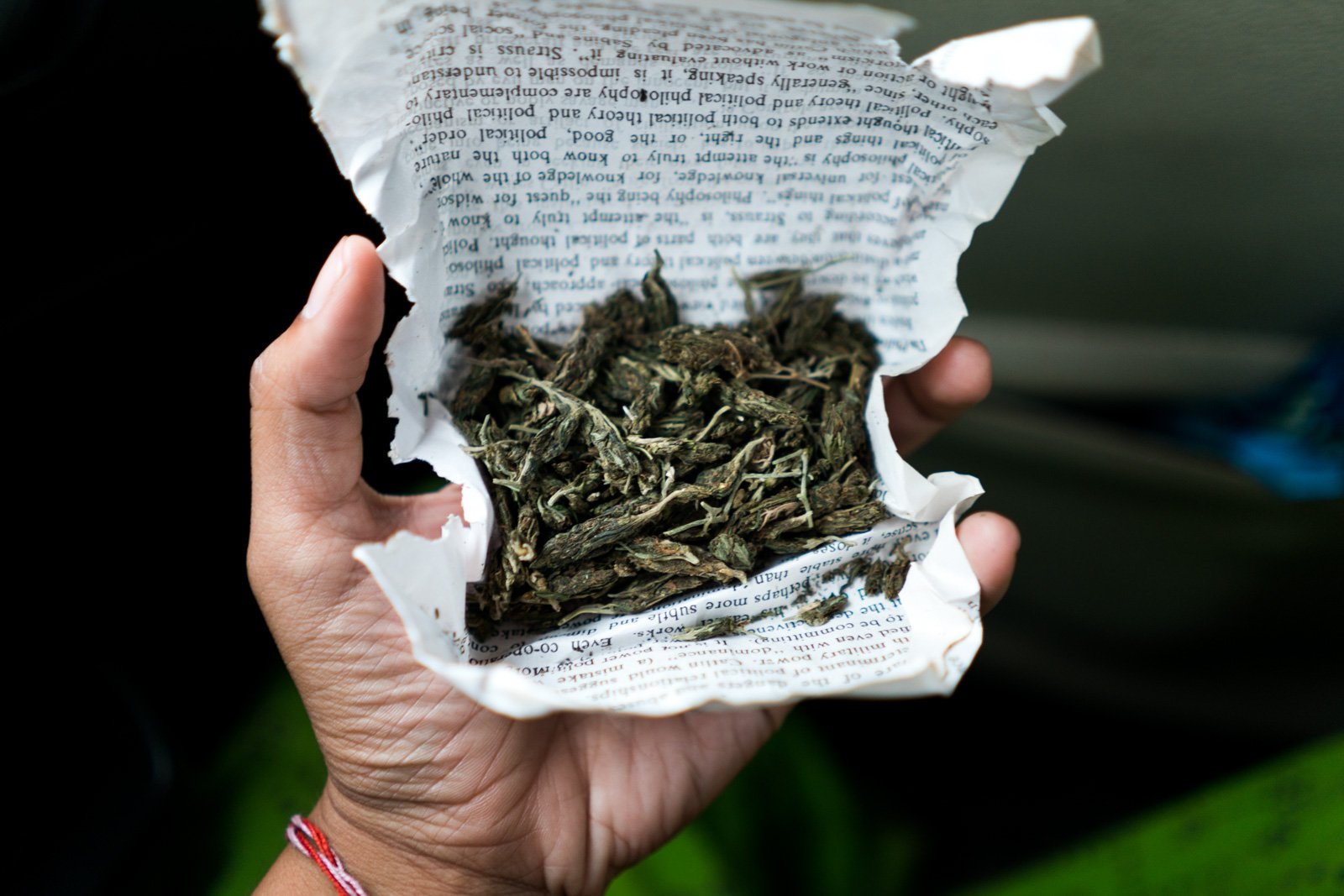
Hemp in Himalayan villages
In some remote villages near the Himalayas, a few farmers are openly cultivating and producing charas (hashish). Charas is considered by many to be the best kind of hashish in the world, and in Western countries a gram of resin can cost up to 20 dollars.
The high quality hashish from these villages has become an attraction for «cannabis tourism». One of the famous sites for such tourism was Malana, however, due to frequent visits by tourists, of course, they had to ban this area. Malana is home to a famous variety of cannabis called «Malana Cream».
Conclusion
In India, despite prohibition, cannabis continues to be widely used. Due to its religious significance, it is considered socially acceptable and bhang consumption remains open without fear of being arrested.
India has never viewed cannabis as negatively as some other countries in the world. Therefore, it is possible that the government may one day decide to legalize it. Already, the country is taking progressive steps to facilitate access to medical cannabis, and it seems likely that industrial hemp may also develop.


